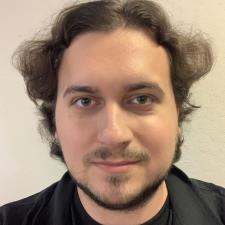I tutor most undergraduate-level courses in mathematics (e.g., calculus, linear algebra, real analysis), as well as math-focused computer science courses such as data structures and algorithm analysis. I have received overwhelmingly positive feedback from students I've tutored, both in terms of approachability and performance.
I obtained my Ph.D. in Computational and Applied Mathematics at Rice University, where I also acquired the Certificate of Teaching Excellence through an accredited...
I tutor most undergraduate-level courses in mathematics (e.g., calculus, linear algebra, real analysis), as well as math-focused computer science courses such as data structures and algorithm analysis. I have received overwhelmingly positive feedback from students I've tutored, both in terms of approachability and performance.
I obtained my Ph.D. in Computational and Applied Mathematics at Rice University, where I also acquired the Certificate of Teaching Excellence through an accredited 2-year program. In early college, I tutored high school students in ACT/SAT test prep and intro-level mathematics courses. In junior and senior year of college, I was Lead Tutor for the Center for Academic Success at Louisiana State University, where I tutored undergraduate students in math and computer science courses at all levels, as well as intro-level physics.
My approach to tutoring is based on constructivist learning theories; that is, I view knowledge as something that is not simply transmitted from teacher to student, but constructed in their minds. To give an example of how this perspective influences my tutoring, I always assess students' prior knowledge first and use that as a foundation on which to build new knowledge. I also challenge conventional knowledge by presenting counterexamples or alternate perspectives. Additionally, when students make errors, I do not simply point them out, but explain the faulty reasoning that led to the error and how to correct it. I give thorough feedback to ensure students do not have any misunderstandings about the material, as a strong foundation is required to build further knowledge later. This emphasis on building foundational knowledge helps students beyond the current lesson or exam and much further into their academic careers. While grades are important, I believe critical thinking, resourcefulness, and good academic writing are far more important, and good grades are a byproduct of these more essential skills.



